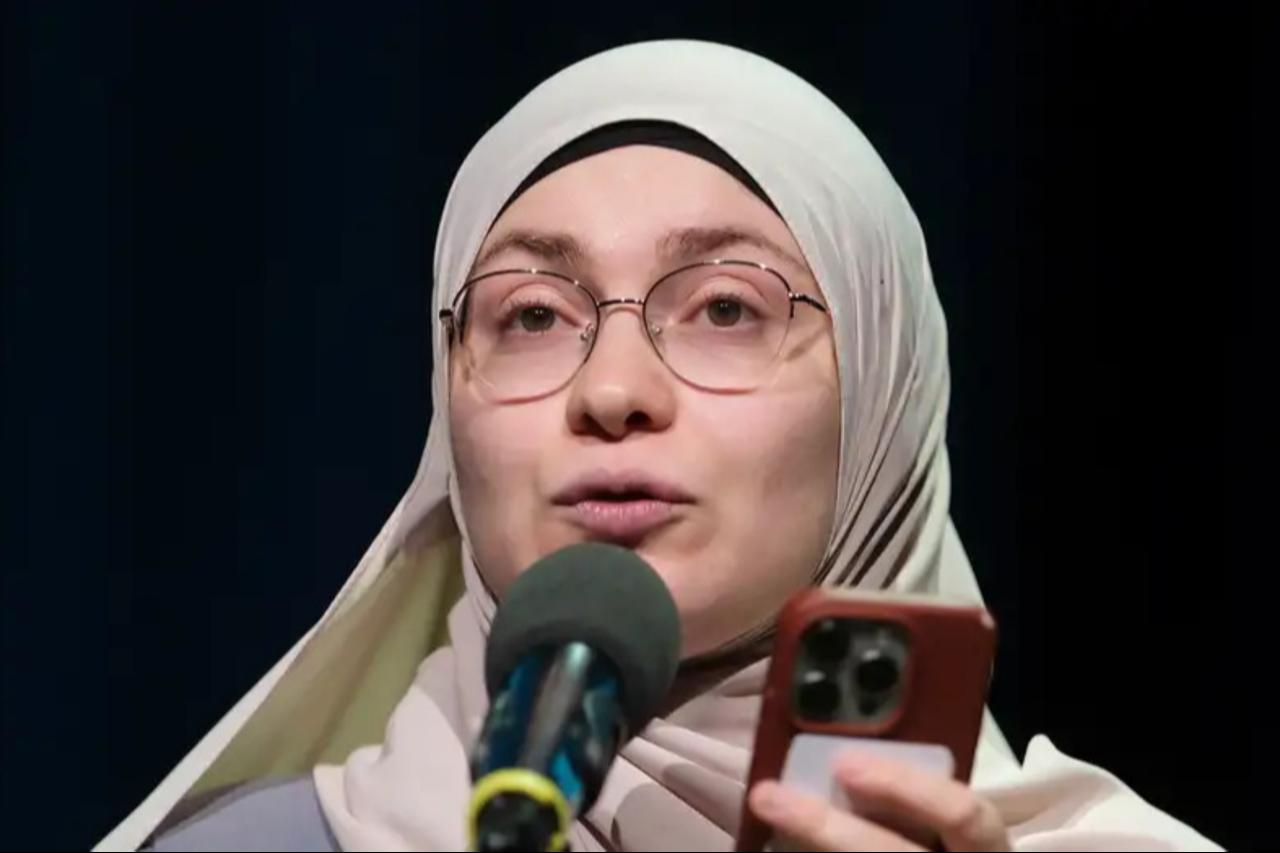
Turkish-born poet and architect Ayse Irem has won Germany’s national Poetry Slam championship, held in Chemnitz, with a striking performance on racism and identity that earned her a standing ovation.
Representing the Muslim poetry collective I, Slam, the 26-year-old poet from North Rhine-Westphalia triumphed over 80 contestants from across German-speaking countries. Performing in front of nearly 1,800 spectators, she addressed discrimination, migration, and social inequality through vivid storytelling that resonated deeply with the audience.
After her victory, Irem told the German Press Agency (dpa), “It is very important for me to talk about serious issues. If no one speaks, then I will.” She added that winning in Chemnitz—a city once associated with far-right violence—carried special meaning for her as a Turkish-born Muslim woman.
During her performance, Irem drew inspiration from the courage of earlier generations of migrants to Germany. Her poem reflected on the struggles of children once forbidden to speak Turkish during school breaks, and on job seekers or tenants who faced rejection due to their names.
She also remembered victims of racist attacks in Molln, Solingen, and Hanau, and criticized law enforcement failures in the case of Oury Jalloh, an asylum-seeker who died in custody in Dessau.
The four-day event in Chemnitz, which will be the European Capital of Culture 2025, gathered poets and writers from Germany, Austria, Switzerland, Belgium, Liechtenstein, Luxembourg, and Italy.
In the team category, the Berlin duo Wortwin & Slamson won their third championship title for their creative language and on-stage chemistry.
The Poetry Slam movement began in Chicago in 1986 as a form of performance poetry where participants present original works without costumes or props, relying instead on expression, timing, and rhythm. In the mid-1990s, the art form spread to Germany, which now hosts the world’s second-largest slam poetry community after the United States.
Each performance lasts up to six minutes, and winners are chosen by a jury selected from the audience—emphasizing both creativity and audience connection.
Next year’s German-language Poetry Slam championship will take place in Hannover in September.